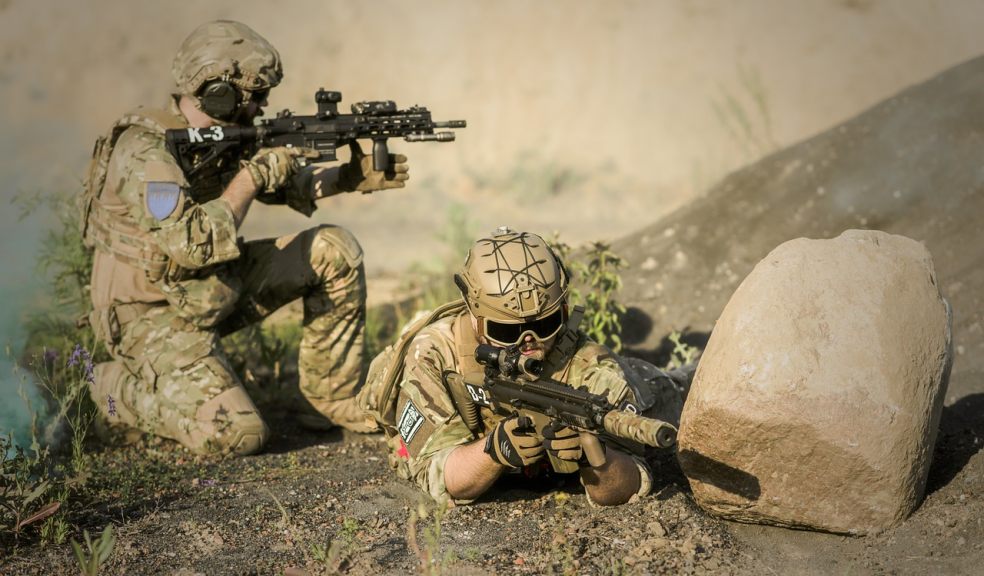
United Nations Battle Against KGL: What You Need To Know
KGL or Kuwait & Gulf Link (KGL) logistics conglomerate describes itself as one of the elite providers of integrated Supply Chain Management facilities in the Middle East. They claim to take care of the entire procedure of supply, starting from logistics and transportation to port management, courier shipping, and freight forwarding.
They have developed a vast clientele with numerous regional and international clients involved continuously in import and export. KGL, also known as Kuwait and Gulf Link Holding Company, was established as a small stevedoring company in the early 1960s and has now grown to work in collaboration with the U.S. military and Coalition Forces. They have a close association with the affairs of the battlefield of the U.S. military, handling the Defense Department of the United States in the Persian Gulf. Currently, their business has been soaring to hundreds of millions of dollars in contracts with the U.S. military.
The KGL fiasco
Recently, KGL was imposed with criminal charges, supported by several legal documents and unreported revelations made in a U.S. lawsuit by some retired executives of a KGL affiliate. The accusations claim that KGL has violated the U.S. sanctions against Iran and is involved in the illicit flow of money from Syria, Iran, and Russia. This allegation raised enormous questions on the undeniably heavy reliance of the U.S. military on the firm. KGL has also been bestowed with several accolades and awards over the years by the U.S. military, which further outlines the doubts arising over the subject.
Several contracts are operating between KGL and the Defense Department, which are directly being linked to IRISL or Islamic Republic of Iran Shipping Lines (IRISL). The issue is being further heightened as IRISL has a history of being tapped in operating a network of shell companies to evade sanctions. KGL is also linked with three other Iranian companies that have been banned by the Treasury's Office of Foreign Assets Control (OFAC). All the sanctions and grants made to KGL by the U.S. Army and the Defense Logistics Agency are summing up to 800 million dollars, which laid the foundation of these accusations.
United Nations' battle against the crisis
Based on the allegations made by former executives of KGL, Marsha Lazareva, the CEO of KGL, was sentenced to jail for ten years with hard labor under the charges of embezzlement. She is a Russian citizen and held a green card while conducting all her business in the United States. This dual country relationship of Marsha is attracting attention from the two major countries of the world and, thus, is creating a global issue. Since it involves the U.S. military and the troubled states like Iran and Israel, the problem is further being escalated. United Nations, sworn to work towards the maintenance of peace and security, is condemning the actions of KGL.
KGL has been a participant of the United Nations Global Compact organizations since 2012, but the illegal involvement of the company has garnered much disrespect from all over the world. This led to the delisting of KGL from the Global Compact status. However, the United Nations presents the non-responsive nature of KGL as a reason for the delisting.
Current scenario
The legal team of Marsha Lazareva, comprising of international stalwarts led by Cherie Blaire, CBE, QC, is vehemently opposing the prison sentence and has reached the U.N. with their plea. They have filed a request for Urgent Appeal with the United Nations with claims that the bar has been impartial in the hearing. They have also raised concerns about the independence and ideological inclinations of the lawyers, prosecutors, and judges governing the entire case.
After being in prison for more than 470 days, Marsha is finally out on a bail of KD12 million, which is about 39.42 million U.S. dollars. Her hearing is still suspended in the legislature, but her legal team is dedicated to contacting the U.N. Special Rapporteur. They are demanding assistance over the entire fiasco and also directly involve the Government of Kuwait as the solely responsible authority. The U.N. has still not responded to this plea, and the delisting of KGL does not make situations better for the organization. The U.N. is continuously endeavoring to make the troubled states of Iran and Syria see better days, and the mechanism of KGL is indirectly promoting unruliness and terrorism in these areas. It is also noteworthy that the U.N. is completely opposing this motion, and providing assistance to Marsha Lazareva is a questionable affair, in the current scenario.
The U.N. global counter-terrorism strategy
The U.N. has devised a global instrument to enhance efforts to combat terrorism at regional, national, and international scales in 2006. They established it as the second pillar of the ideologies of the U.N. This declaration not only made it clear that the world is now moving towards global peace and terrorism of all kinds is unacceptable, but also established that practical measures will be taken upon violation of this conduct.
The Global Counter-Terrorism Strategy was adopted as a resolution, and the entire annexed Plan of Action was prepared with four significant pillars of the system:
- Addressing and discussing the conditions that are breeding terrorism and the factors that are leading to the spread of terrorism.
- Devising systematic plans and measures to condemn terrorism and formulating steps to be undertaken against those found guilty in a trial.
- Putting in efforts to make every state capable enough of preventing and forbidding terrorism and strengthening the critical role of the United Nations system by taking every step as per the rules and regulations of the U.N.
- Making sure that the human rights of all beings are not violated and the fundamental basis of the right to a peaceful life is ensured by fighting against terrorism.
These four pillars have been reaffirmed in several actions of the U.N., over the years, and these seem to play a significant role in the KGL fiasco. The ruling of the U.N. is yet to be declared, but the odds are going against the terrorists and is motioning towards global peace.














